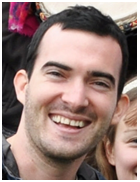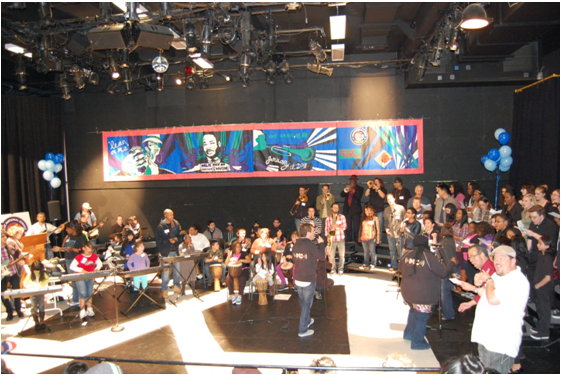We loved seeing the 66% increase in people choosing “The Dreaded Stairs” over the escalator after the stairs were made more fun in this video.
It got us thinking… if we made a conscious effort to make our volunteer projects more enjoyable for volunteers, would we see a 66% increase in the number of volunteers who return to the project the next time it occurs?
Seems like a theory worth looking into, right?!
Here are a few ways to make your volunteer project more fun:
1. Foster Introductions. Most of us enjoy meeting new people. Consider starting the project with an activity that introduces your volunteers to at least one new person. Try adding an ice breaking activity to the opening moments of your project.
2. Play Music. If your project involves physical activity, like landscaping or painting, consider adding a soundtrack! Imagine your volunteer crew singing along and / or adding dance moves to the day. What fun!
3. Break Bread. Consider taking a break for breakfast, lunch, dinner or a snack. People connect with each other at meal times. If you don’t have the budget to provide refreshment, try making the project a potluck.
4. Create Conversation. We humans love to connect with one another. Consider building in a closing conversation where your volunteers can discuss the difference they made, concerns they may have and next steps they’d like to take. (We know it sounds serious – but it really is fun!) You can find ideas for building group reflection into your project here and here .
5. Make Memories. Take photos and / or video of your volunteers at work and share the results on Twitter and Facebook. Your volunteers will have fun commenting on the memories made.
6. Celebrate! Consider closing your project with a celebration of the accomplishments your volunteers made. This could be a celebration at the project site or a meet up at a local restaurant afterward.
Enjoy!

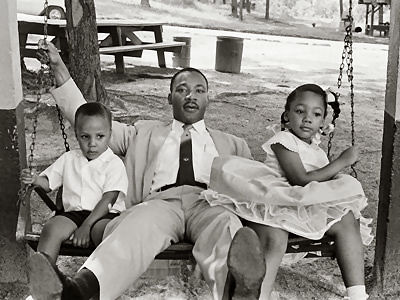
 The Teacher’s Supply Depot is a nonprofit that gathers donated goods and hosts give-aways for district schools. Teachers, principals and PTAs can come get paper, educational material, art supplies and much more for free!
The Teacher’s Supply Depot is a nonprofit that gathers donated goods and hosts give-aways for district schools. Teachers, principals and PTAs can come get paper, educational material, art supplies and much more for free! After the pictures were painted and crafts were made the History Channel’s documentary film
After the pictures were painted and crafts were made the History Channel’s documentary film 
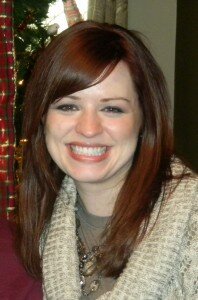 Today’s post comes from Anna Hoyt, an AmeriCorps VISTA serving with the C4 Network.
Today’s post comes from Anna Hoyt, an AmeriCorps VISTA serving with the C4 Network.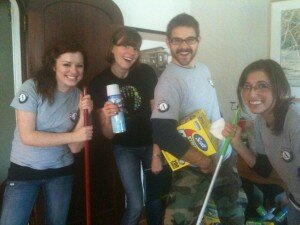 I resolved to find a way to utilize my resources to make the day of service successful. Through the network that HandsOn and AmeriCorps provide, I was able to call up another AmeriCorps member serving in another part of the Seattle area who was coordinating a completely different project. She invited me to join in her effort to clean transitional homes for AIDS victims moving from the crisis of homelessness to self-sufficiency through a local organization. I had an incredible day serving alongside fellow community members and sharing in a great day of service to honor Martin Luther King Jr. What could have been a very discouraging day resulted in a new opportunity to partner with others and make a real impact in our community.
I resolved to find a way to utilize my resources to make the day of service successful. Through the network that HandsOn and AmeriCorps provide, I was able to call up another AmeriCorps member serving in another part of the Seattle area who was coordinating a completely different project. She invited me to join in her effort to clean transitional homes for AIDS victims moving from the crisis of homelessness to self-sufficiency through a local organization. I had an incredible day serving alongside fellow community members and sharing in a great day of service to honor Martin Luther King Jr. What could have been a very discouraging day resulted in a new opportunity to partner with others and make a real impact in our community. You’ve thanked the volunteers that serve with your organization, right? Thanking them when they’re serving is important, but it’s also important to show them that their service is important even when they’re not serving. A thank you note sent to a volunteer at their home is a great reminder that they’re an important part of the organization. Here are eight tips for writing personal thank you notes to your volunteers:
You’ve thanked the volunteers that serve with your organization, right? Thanking them when they’re serving is important, but it’s also important to show them that their service is important even when they’re not serving. A thank you note sent to a volunteer at their home is a great reminder that they’re an important part of the organization. Here are eight tips for writing personal thank you notes to your volunteers:
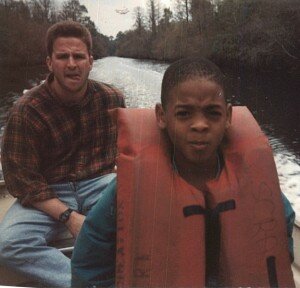 PJ is a very memorable mentor. He is the reason I landed in New Orleans. He saw something inside of me I could not and kept on believing in me. PJ has consistently challenged me in ways that have frustrated me and other ways that have helped create more joy in my life. While we aren’t as in frequent communication as we once were, he is always there when I need to pick up the phone and ask advice.
PJ is a very memorable mentor. He is the reason I landed in New Orleans. He saw something inside of me I could not and kept on believing in me. PJ has consistently challenged me in ways that have frustrated me and other ways that have helped create more joy in my life. While we aren’t as in frequent communication as we once were, he is always there when I need to pick up the phone and ask advice. Meridith Rentz, Chief Operating Officer
Meridith Rentz, Chief Operating Officer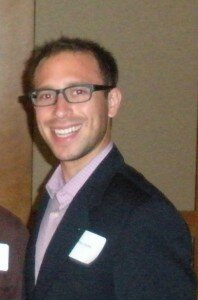
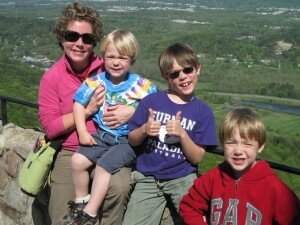 By Meridith Rentz, COO, Points of Light Institute
By Meridith Rentz, COO, Points of Light Institute